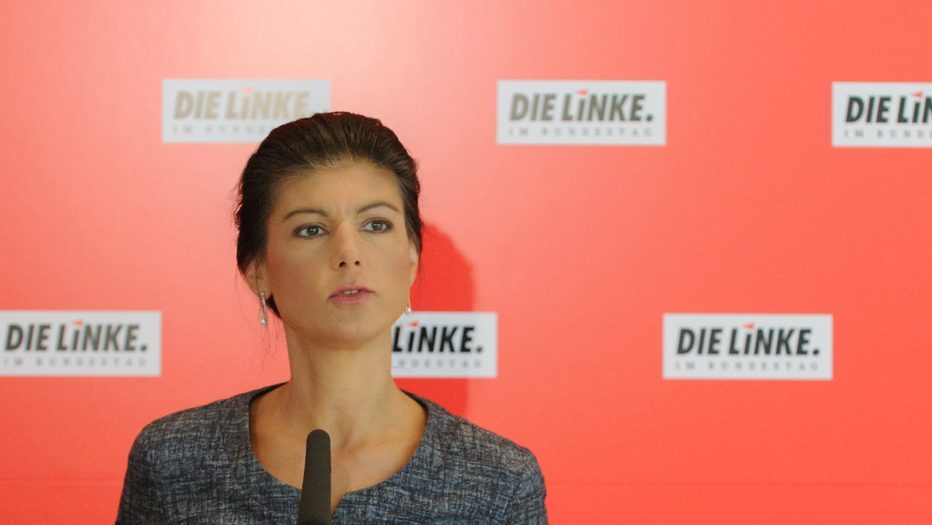
Sahra Wagenknecht
Photo: photocosmos1 / Shutterstock.com
Five to ten MPs from the German Die Linke party have quietly pledged support for a left-wing, anti-mass immigration party rumoured to be formed by disgruntled former party leader Sahra Wagenknecht in a move that could split the German left down the middle.
A current MP for North Rhine-Westphalia, Wagenknecht has earned a reputation in German left-wing politics as a radical outsider with vocal opposition to Berlin’s generous asylum policies and its commitment to NATO in Ukraine. Wagenknecht left Die Linke acrimoniously in March, amid speculation that she was exploring the potential for a new left-wing migration-critical party.
It now appears that Wagenknecht’s plans for a new party are about to come to fruition, as Die Linke leader Dietmar Bartsch warned that a potential split would essentially end Die Linke as both a parliamentary and social force.
An avowed Marxist-Leninist party formed after the collapse of communism, Die Linke has struggled in recent years, placing sixth in opinion polls, as right-wing populists in the AfD corral populist momentum.
Wagenknecht appears undeterred by detractors and party comrades, saying that Die Linke is already on the path to becoming a “meaningless splinter party” unable to rally support despite growing discontent with Berlin’s ruling coalition.
Wagenknecht is popular among grassroots Die Linke members in the former East Germany, where her anti-war views resonate. She is also supported by fellow socialist MPs Klaus Ernst and Amira Mohamed Ali.
Ali announced her resignation as co-chairman of the party on Sunday, August 6th, in support of Wagenknecht, who has been targeted for her strong anti-immigration, anti-woke beliefs. As a result, Die Linke officials commenced last-ditch emergency talks to avert a bitter split.
If fully realised, the emergence of a viable socialist party that campaigns against mass immigration would signal a major change in German politics, with opinion polls showing that Wagenknecht and her theoretical party would be the largest in certain regions, overtaking the AfD.
Mainstream parties are already reeling from the success of the AfD soaring to second place in the polls. This alignment of views between Wagenknecht and the AfD would challenge several conventional policies in Germany, such as immigration, the EU and sanctions against Russia.
While disavowing previous endorsements of Stalinism and Russian militarism in Ukraine, Wagenknecht has been outspoken in her anti-war and anti-NATO rhetoric, calling for the dissolution of the military alliance on multiple occasions.
Her 2021 book The Self-Righteous (Die Selbstgerechten), which reached number one on German non-fiction bestseller lists, denounced elitist attitudes among Western leftists and condemned support for mass immigration as a betrayal of working-class interests.
